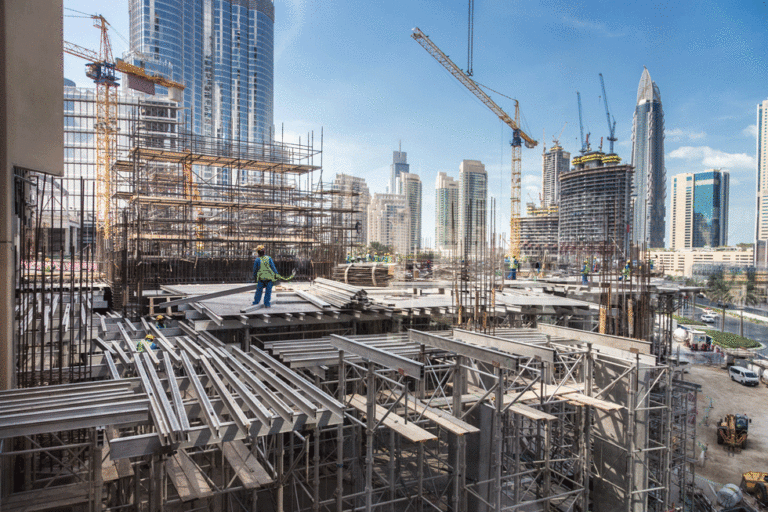Signs of trouble ahead for Dubai’s construction market

Key indicators point to a potential crash looming in Dubai’s projects sector, with significant consequences for the regional market
Architects are not prone to fretting, so when one recently described his concerns about the market, it was worth taking note.
“Six months ago, we were getting two or three RFPs [request for proposals] a week for new residential projects in the emirate,” says the principal of a Dubai-based architectural practice. “But today we are lucky to be getting that number in a month.”
Design firms represent the leading edge of the project development cycle. Projects they take on usually go to tender 12-18 months later. Their experiences will inevitably be felt by others further along the project delivery chain.
Concerns grow
Taken in isolation, anecdotal evidence of a market slowdown should be taken with a pinch of salt. But when such descriptions are supported by other bearish market indicators, it points to a potentially extremely worrying outlook for the market in the months to come.
The signs are ominous. Off-plan property sales in Dubai, the primary driver of new project activity, fell 37 per cent year-on-year in the first quarter of 2018, and a massive 46 per cent by value, according to the Dubai Land Department. Property prices and rents are also down, by double digits across most areas of the city over the same period.
At the same time, up to 30,000 new units are expected to come to the market in 2018, while demand growth has been stymied by low oil prices, slow economic growth, the introduction of VAT and challenges in the retail sector.
All of this matters to the region because Dubai and its construction sector is by far the most critical component of the GCC projects market. While the region has seen the value of awarded contracts across all sectors fall by a third between 2015 and 2017 amid declining crude prices, Dubai has experienced a resurgence in activity, growing from $25.3bn in 2015 to $31.2bn last year.
Indeed, at $22.5bn, the value of construction contracts awarded in Dubai in 2017 was bigger than the region’s 10 next biggest markets combined. Alone, Dubai accounted for about 45 per cent of all construction deals let in the GCC in 2017, according to online projects tracking service, MEED Projects.
The consequences for construction companies and economies across the region would therefore be enormous were Dubai’s property market to crash.
Past experience
In 2008-09, in the wake of the global financial crisis, Dubai’s inflated property market bubble burst and real estate prices collapsed as credit disappeared and liquidity dried up. It was four years before real estate investor confidence returned.
While today’s property investors are displaying nothing like the over-leveraging seen in 2008, key indicators such as falling prices, oversupply and faltering demand all point to a looming major slowdown.
Construction contracts awarded in Dubai
For construction companies however, the facts on the ground do not suggest an immediate collapse. The $5.2bn-worth of construction contracts awarded in Dubai in the first quarter of 2018 was higher than the $4.7bn of awards made in the previous quarter, and in line with the 2017 quarterly average.
At the same time, the 111 new construction projects announced in the first quarter was lower than the previous three quarters but higher than the first quarter of 2017 and each of the four quarters in the year before that. If a construction collapse is looming, it is yet to reveal itself on the ground with a decline in new work.
Given the still-fragile condition of the projects market, there will inevitably be nervousness among contractors and consultants. With so many of the ingredients of a construction crash in place, the pertinent question now is perhaps not whether or not there will be a crash, but when it will happen.


